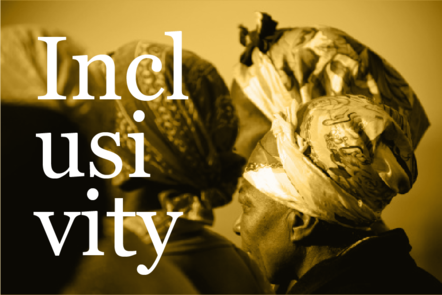WELCOME TO THE COURSE VIDEO TRANSCRIPT
After centuries of colonisation followed by the entrenched racist government of the apartheid state, South Africa held its first Democratic elections in 1994. Shortly after in 1997, Nelson Rolihlahla Mandela stood on the soil of Robben Island, where he had spent 17 years of his life sentence, imprisoned for his political opposition to apartheid. He addressed the crowd as the president of a new Democratic South Africa, and commenced his opening speech for the reinvented Robben Island Museum, a symbol of the triumph of the human spirit over extreme adversity. Apartheid was a very dark chapter in South Africa’s history. It was during this time that the racist and segregation practises of the colonial authorities became entrenched in law.
But apartheid did more than strip dignity and attempt to break human spirit. It also stripped the culture and heritage of the nation. And with it, its identity as the active participation of a racist museum practises, contributed to the erasure, silencing, and marginalisation of stories of people of colour.
The Robben Island Museum was therefore established as one of the new institutions under a Democratic state. Its mission was to support a new national agenda of interrogating past practises of racist research, interpretation, and representation of Black people in cultural institutions. Welcome to your course in creating meaningful and inclusive museum practises. This course will explore different ways and methodologies that museums around the world are using to engage with those living in the margins of society, to better address their needs and become spaces of social inclusion and community building. But marginalisation is not exclusive to race. The elderly, persons with disabilities, migrants, members from the LGBTQI+ community, as well as ethnocultural communities, minorities, and
indigenous peoples, can all experience exclusion. It is their job to ensure that museums are inclusive for all.
Throughout this course, you’ll learn with me, Armando Perla. I’m an assistant professor, consultant, activist, independent curator, and a board member of both the Canadian Museums Association and international consulate museums International Committee on Ethical Dilemmas. And you will learn with me, Deirdre Prince Solangi. Over the past three decades, I have been a specialist in education, culture and heritage, and a spatial justice activist. We will also learn together with others from across the world to garner a holistic perspective of how the global museum community is tackling different forms of exclusion. Robben Island had been a symbol of oppression, a prison of oppressed peoples of communities of heritage. But on that day in 1997, its most famous inmate stood at its steps in defiant hope and championed what the museum has come to represent– a brighter future for South Africa through elevating the voices of historically marginalised communities, arguably the nation’s most important museum.
So how can our museums harness the past to inform the now and dream a different future over to you?
Welcome to the course
Welcome to this course on building and strengthening inclusive museums. We are excited to have you on this learning journey with us.
In this course we will, through diverse and exciting case studies, practical application and brief but powerful readings and interviews, encourage you to reflect on your own practice, engage and implement processes for building inclusive museums. The subject matter is quite challenging. It may trigger memories or experiences which you have had in the past. It may trigger a sense of discomfort. All of these are valuable places to start developing inclusive, non-discriminatory practices for museums. It begins with us. We therefore encourage you to stay the course, set aside enough time for thinking through the concepts and how you react or respond to what is being said.
Over the next four weeks this course will address concepts and terms related to inclusive practice, collaborative methodologies at a strategic and leadership level, collaborative methodologies in practice and examining social inclusive practices already tried and tested across the world.
We invite you to maintain a journal for the duration of the course. Through regular free writing, word wheels, brainstorming, sketches or other creative means, self-reflexivity will help you to deepen your insights, generate ideas.
Finally, we would like to say that, ironically, this course is not 100% inclusive. We want to improve it by including other languages and other resources to make it more accessible. If your institution is interested in partnering with ICOM to enhance the impact of this initiative, please let us know.

